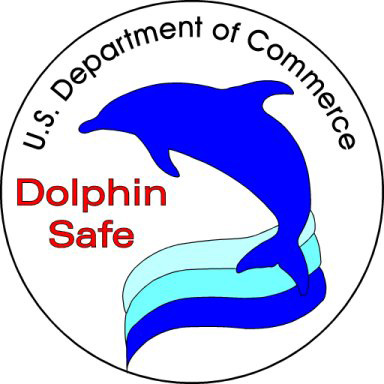History shows us commoditized markets can be fertile ground for differentiation and pricing power if a product or company is innovative, branded properly and/or connects emotionally with purchasers. In the tech space we think of Apple and Bose, while in the food arena brands like Häagen-Dazs, Grey Poupon and Purdue Chicken show that no sector of the market is immune to establishing high-end merchants.
Ethical Oil
And this is all I could think about when I came across the legal fight between the Kingdom of Saudi Arabia and the Ethical Oil Institute an advocacy group whose message involves switching from Saudi oil, a product supporting human rights abuse to Canadian oil sands. Currently the ad is not being shown in Canada as a result of Saudi threats relating to what the kingdom deems is falsehoods in the ad.
The video above explains that Saudi women are not allowed to drive, leave the house or go to work without the permission of a male guardian and that their testimony in court is only equal to half a man’s. It goes on to say, “Why are we paying their bills and funding their oppression?” It continues, saying ethical oil is produced from Canada and says, “It’s a choice we have to make.”
Interestingly while the Saudis complain the ad is inaccurate, they should likely be happy that it doesn’t mention honor killings, a practice in the Middle East, Asia and other areas which could be responsible for deaths of up to 20,000 women a year.
Human Rights Watch defines “honor killings” as follows:
Honor killings are acts of vengeance, usually death, committed by male family members against female family members, who are held to have brought dishonor upon the family. A woman can be targeted by (individuals within) her family for a variety of reasons, including: refusing to enter into an arranged marriage, being the victim of a sexual assault, seeking a divorce—even from an abusive husband—or (allegedly) committing adultery. The mere perception that a woman has behaved in a way that “dishonors” her family is sufficient to trigger an attack on her life.[7]
According to Wikipedia, in 2008, a woman in Saudi Arabia was killed for chatting to a man on Facebook and a Saudi cleric blamed Facebook for the strife it caused. The Saudis may have been better off not drawing attention to these ads and moreover been thankful they didn’t go farther.
China’s One-Child Problem
This idea of a premium brand with superior pricing power made even more sense as I contemplated China. The country is the largest external manufacturing arm of the US and much of the west yet; Chinese citizens have no access to the uncensored internet, live under an authoritarian regime and have to suffer forced abortions due to the one-child-per family policy of the government.
To mark the 31st anniversary of this policy, the House Foreign Affairs Committee’s Human Rights Subcommittee held a hearing last week to highlight the China Democracy Promotion Act of 2011, which would give the president of the U.S. the right to deny entry to people who have committed human rights abuses in China. This would include members of the Family Planning Commission who oversee forced abortions.
This article details the account of Yeqing Ji who received a forced abortion under sedation and the emptiness it has caused in her life. She now lives in the US.
Again, we have another major exporter to the US where American dollars are used to subsidize horrible treatment of women. What is shocking is how many people will get behind a cause like PETA – or People for the Ethical Treatment of Animals yet turn a blind eye to the women of the world who are treated in many cases far worse.
My sense is the problem has been under the radar – after all the US didn’t wake up to the fact of how poor women were treated in Afghanistan until after it was attacked on 9/11.
While we are seeing challenges to Saudi Arabian and Chinese treatment of women and they are isolated, it could be a matter of time before the western world alters their purchasing decisions in line with their morals.
In 1990, tuna which was a product as commoditized as oil or gasoline started to have the Dolphin Safe label – an indicator that accidental dolphin deaths were kept at a minimum if not eliminated.
Is the next frontier a woman safe label? And if so, how much pressure would this put on countries in the Middle East and elsewhere who export large amounts of commodity products yet have terrible human right’s records?
A girl’s best friend
Conflict diamonds are diamonds that originate from areas controlled by forces or factions opposed to legitimate and internationally recognized governments, and are used to fund military action in opposition to those governments, or in contravention of the decisions of the Security Council. In theory, this designation makes these diamonds less valuable. A number of UN Security Council Resolutions banned purchases of such diamonds and this was coupled with executive orders from both President Clinton and Bush banning the import of these diamonds into the US.
Here is yet another example of a commodity used to facilitate terrible acts and a response from the world was to use financial pressure to bring behavior in-line with acceptable western-value human rights.
There is a trend at work here we should all take note of. One wonders if a global movement will eventually spring up which will push the world into treating not only women but human beings more like individuals who deserve liberty and freedom from tyrannical rule.
And this comes on the day when Apple is reported to have reduced its iPad orders in China by 25% as they ramp up production in Brazil. Will companies like Apple with multiple manufacturing facilities offer products which are specifically sourced from an individual country, allowing consumers to make product purchases based on women’s or human rights? Will gas stations begin to offer pumps which are more expensive but label them as “women friendly?”
To me, this analysis screams new business ideas… Especially in light of the fact that many of us have paid more for food which is organic and/or harvested from sustainable farmland.
What do you think?






